#Alice Watkins
Text
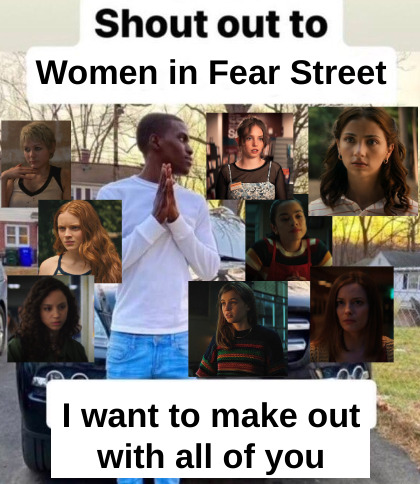
#fear street#istg someone help me i was gay panicking the whole time#cindy berman#ziggy berman#deena johnson#kate schmidt#fs alice#heather watkins#riv rambles#sameena#the fear street trilogy
93 notes
·
View notes
Photo
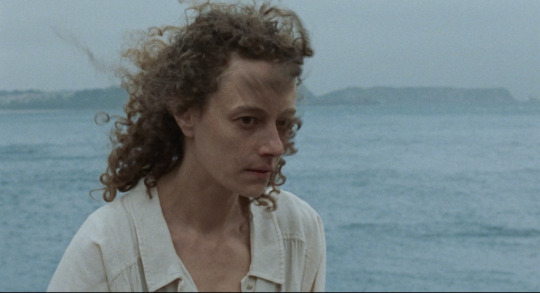
Amarres, Valentine Caille (2022)
#Valentine Caille#Quentin Faucheux Thurion#Alice de Lencquesaing#Jonathan Genet#Gérard Watkins#Jeanne Delavenay#Pierre Boulanger#Robin Fresson#Gaspar Claus#Noémie Fy#2022#woman director
13 notes
·
View notes
Text
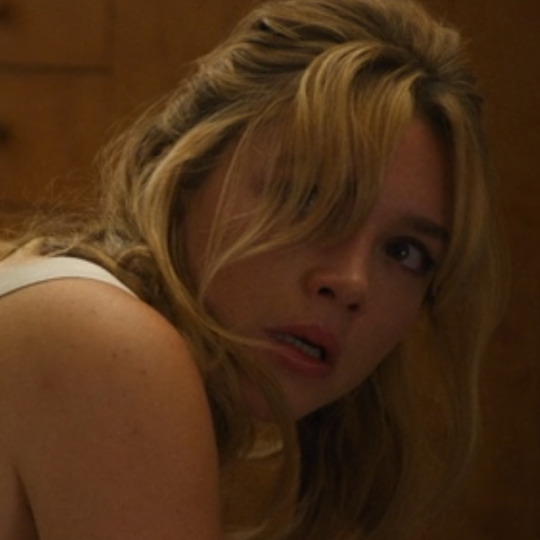


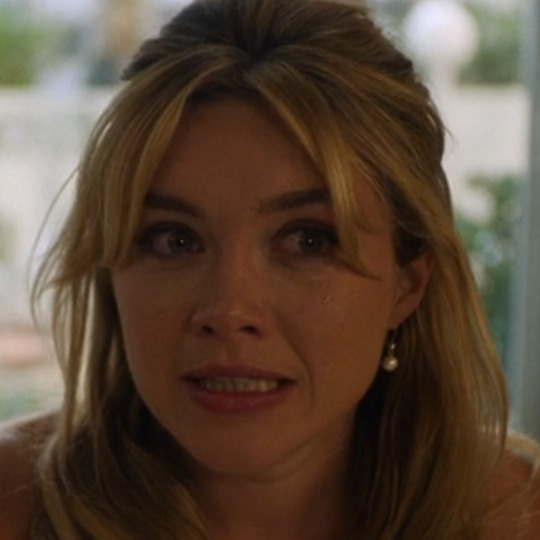
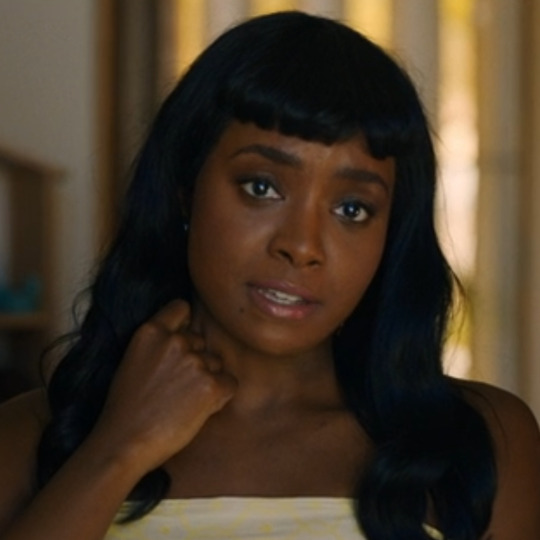
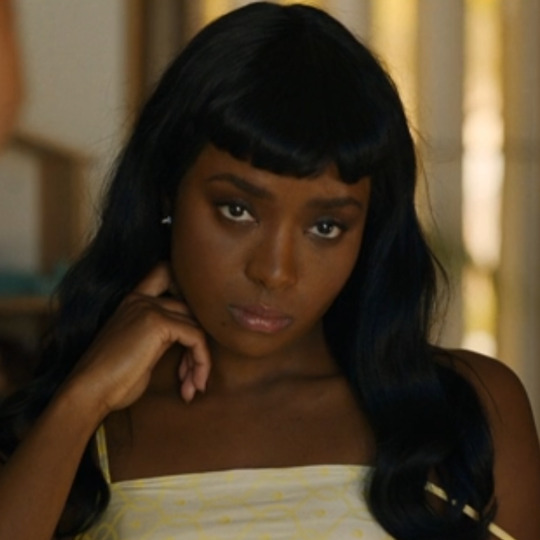


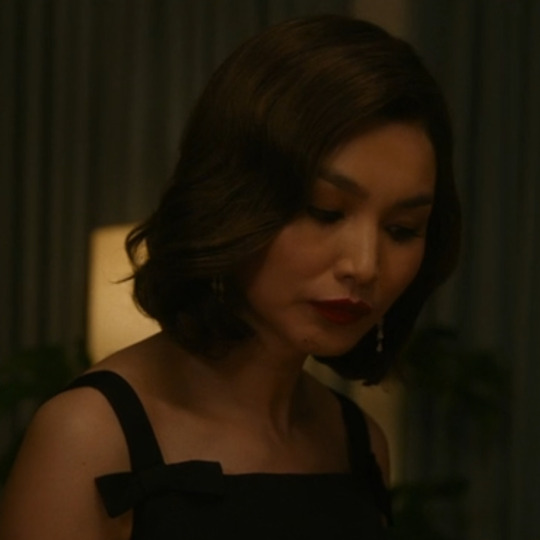
⊹ ִ࣪ এ credits on twitter ִ࣪ ⌁ like or reblog if you save! ♡ ¸. • *
#like or reply if you see#like or reblog#like or comment#like or rb if u see#icons without psd#icons sem psd#icons with fans#alice chambers icons#alice chambers#florence pugh icons#florence pugh#margaret watkins#margaret watkins icons#kiki layne#kiki layne icons#shelley#shelley icons#gemma chan#gemma chan icons#don't worry darling#dont worry darling#movies icons#harry styles icons#harry styles
5 notes
·
View notes
Text

2 notes
·
View notes
Text

Drew Watkins as The Red Queen in Adventures with Alice in Golden Gate Park - come follow Alice through park and trail, over hill and dale, through forest and glen. Two weekends of this production remain and tickets won't last!
Photo by the inimitable Tracy Martin
https://www.weplayers.org/2024-adventures-with-alice-in-golden-gate-park
#golden gate park#adventures with alice#drew watkins#site-integrated theatre#alice in wonderland#tracy martin
0 notes
Text
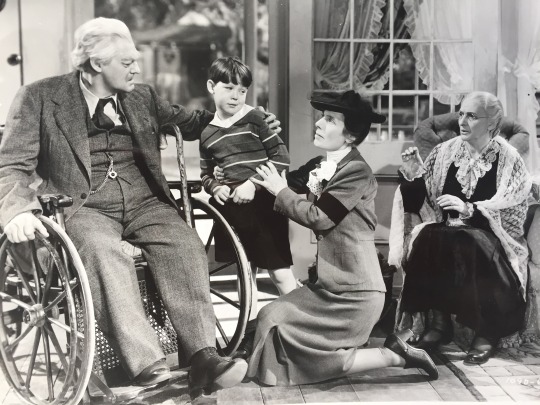
On Borrowed Time (1939)
As time marches on, certain names that were once synonymous with American drama lose their weight, even among film buffs. In the early twentieth century, the Barrymore siblings – Ethel, John, and Lionel – were celebrated on both Broadway and in Hollywood, each one making a successful transition from the silent era to synchronized sound. The eldest, Lionel, was born in 1878 and was a Hollywood elder statesman when he made 1939’s On Borrowed Time. Directed by Harold S. Bucquet and based on a 1938 play of the same name by Paul Osborn (itself based on a 1937 Lawrence Edward Watkin novel of the same name), On Borrowed Time is a star vehicle for the eldest Barrymore. By the late 1930s, Barrymore had broken his hip twice – never healing properly. As such, he remained wheelchair-bound for the remainder of his life. Physical disablement, even in modern Hollywood, often curtails acting careers. But Barrymore’s home studio, Metro-Goldwyn-Mayer (MGM), often had their screenwriters find ways to incorporate Barrymore’s disability.
Lionel Barrymore was also in physical pain and depended on cocaine injections to work and sleep. However, this never affected his acting, as he delivers a wonderful lead performance in On Borrowed Time. Those less knowledgeable about this period in Hollywood history will probably only recognize his surname and the acting family he came from. Nowadays, most cinephiles probably only know of Lionel Barrymore through It’s a Wonderful Life (1946; Barrymore played the villainous Mr. Potter). Lionel Barrymore's role as the somewhat foul-mouthed but caring grandfather here offers something completely different.
Mr. Brink (Cedric Hardwicke) is hitchhiking somewhere near a small town in contemporary America. But he is not interested in riding with just anyone:
MAN IN CONVERTIBLE: May I give you a lift, sir?
MR. BRINK: Thank you, no. I have an appointment – a lady and gentleman.
MAN IN CONVERTIBLE: Oh, I’m sorry. [coughs] I thought you signaled me.
MR. BRINK: No. Not yet...
As you may have guessed, Mr. Brink is a personification of death. A few minutes later, he flags down that lady and gentleman and takes their lives in a car accident. That couple are the parents of John “Pud” Northrup (Bobs Watson; best known as Pee Wee in 1938’s Boys Town), who will now live solely under the care of Gramps and Granny (Barrymore and Beulah Bondi) and their housemaid Marcia (Una Merkel). At the memorial service for Pud’s parents, Gramps donates a substantial sum to the church. After learning of Gramps’ generosity, Pud exclaims that his grandfather doing such a good deed should allow him a wish. Gramps’ wish: as a deterrence local children stealing his apples, he wishes that anyone who climbs up his apple tree will be stuck there until he permits them down. Some time later, Mr. Brink arrives at Northrup grandparent homestead for an appointment with Gramps. Gramps tricks Mr. Brink up the apple tree, trapping him there – setting off a series of developments that put Gramps in a moral bind.
In a cast already headlined by character actors, how about some more? On Borrowed Time also features Henry Travers (the guardian angel Clarence in It’s a Wonderful Life) and Nat Pendleton as neighbors, Grant Mitchell as Gramps’ lawyer, James Burke as the sheriff, Charles Waldron as the reverend, and an uncredited Hans Conried (Captain Hook and Mr. Darling in 1953’s Peter Pan) as the man in the convertible.
Elsewhere, away from the camera, one can’t find much of composer Franz Waxman’s (1935’s Bride of Frankenstein, 1951’s A Place in the Sun) string-dominated score anywhere, but this is one of Waxman’s finest scores of his early career.
The opening half-hour of On Borrowed Time are its weakest. Hardwicke’s Mr. Brink has an eerily charismatic first impression that the scenes immediately following it cannot hope to match. Instead of learning more about the nature of Mr. Brink, the film instead shows us some of Pud’s misadventures and his relationship with his grandparents. Strangely, the loss of his parents seems to have had little effect on Pud at all, although his sadness seems to emerge in his contentious relationships with the other local boys and Aunt Demetria (Eily Malyon). Aunt Demetria, shortly after the Northrup parents’ deaths, hatches a scheme to assume guardianship of Pud and attain access to his considerable inheritance. Her designs are so obvious to all that when Gramps and Pud start calling her a “pismire” (literally, a pissing ant), Granny looks the other way when she might otherwise correct their boorish behavior. All of this takes longer to develop than it should (it does not help that Bobs Watson’s performance as Pud feels disjointed, but more on that shortly), even if the opening act primarily serves to show us how close Pud is to his grandparents. Even though we sense where the dramatic stakes are headed, On Borrowed Time almost seems to splinter into another film before we see Mr. Brink again.
In addition, contemporary reviews of On Borrowed Time lambasted screenwriters Alice D.G. Miller (1929’s The Bridge of San Luis Rey) and Frank O’Neill (no other film credits) for sanitizing the language from the original stage play due to the demands of the Hays Code (the self-censorship code that applied to major Hollywood studios from 1934-1968, repealed in favor of the current MPA ratings system). For the record, the text of the stage play was not freely available as I was writing this piece, so I have no means of comparison. Paul Osborn’s On Borrowed Time has only appeared on Broadway thrice: the 1938 original production and short-lived revivals in 1953 and 1991. The play had also been adapted for radio and television.
Compared to those film reviewers during the film’s 1939 release and many modern writers, I tend to be more forgiving if the Hays Code-enforced changes to a film do not significantly alter the spirit of the text. Sure, it would be funnier to hear disparaging language stronger than “pismire” in a 1939 film, but Pud’s and Gramps’ feelings towards Aunt Demetria, the apple-stealing boys, and Mr. Brink are comprehensible in this movie.
The closing two acts of On Borrowed Time draw its strengths from the performances and the narrative’s adoption of fairy tale logic (any film beginning with death flagging down folks he has an “appointment” with is almost always operating under the terms of the fantasy genre). In tandem, Lionel Barrymore and Bobs Watson’s good-humored and loving rapport lift the film above its structural flaws. Barrymore’s Gramps – an American Civil War and Spanish-American War veteran* – is a classic small town curmudgeon, only allowing his bitter exterior to crumble when Granny and Pud are around. Looking to protect Pud from Aunt Demetria, Gramps remains defiant towards the wills of Mr. Brink and the insistent neighbors. Perhaps it is not the greatest Lionel Barrymore performance, but he is always effective.
Bobs Watson, as Pud, is inconsistent anytime he does not share the scene with Barrymore. The explanation for his performance comes from Watson himself: “My dad was the one that really directed me, and I think some of the directors resented it a little bit… I trusted my dad implicitly, so I read the dialogue the way he told me.” His father’s influence results in occasionally overcooked line readings against director Harold S. Bucquet’s vision (MGM’s Dr. Kildare series, 1943’s The Adventures of Tartu), more theatrical than what the scene calls for. But when the scene calls for crying, by golly can Watson (who had a reputation for crying on cue) deliver. And his scenes with Barrymore are beautifully acted, convincingly showing the audience the love between grandson and grandfather.
Sir Cedric Hardwicke, a noted Shakespearean actor, cuts no corners as Mr. Brink. Mr. Brink is aware that, in time, he will keep all his appointments. Hardwicke plays Brink as slightly menacing, always dignified (no one expects that perfect an English accent in rural America), and somewhat aloof to what he probably thinks are childish trivialities and life’s mundane moments. He is the antagonist, but in no way is he the villain of this movie. That belongs to Eily Malyon as Aunt Demetria, a character some compare to Margaret Hamilton’s Mrs. Gulch/Wicked Witch from The Wizard of Oz (1939; released a little more than a month after On Borrowed Time) due to her temperament and unbending nature. One wishes the film made more use of the always-underappreciated Beulah Bondi as Granny (Bondi very often played elderly mothers and grandmothers, almost always appearing much older than she actually was), too.
Death and loss are two themes currently popular in modern cinema (see: a vast bulk of Pixar’s filmography, 2016’s Manchester by the Sea, 2019’s The Farewell, and a large selection of pieces from any film festival worldwide), but in the early decades of talkies in Hollywood, you would be hard-pressed to find films in which those themes were truly central, not secondary, to the narrative. And when those themes do appear, they appear in the context of fantasy films, like Death Takes a Holiday (1934) and On Borrowed Time. Anecdotally, I suspect the scarcity of major Hollywood movies revolving around death and loss is partly due to the realities of the 1930s and 1940s. Audiences, concerned with a worldwide Great Depression and soon a Second World War, did not seek films ruminating about death and loss and sought escapist fare instead. There was enough despair to go around.
The film that emerges on the back of these performances is thanks to its ability not to concentrate on the fantastical situation the Gramps and Pud find themselves in, but to raise the moral questions that Mr. Brink’s presence – and eventual entrapment – poses. Mr. Brink’s time in the tree results in consequences that Gramps and Pud could not imagine. Gramps’ decision to delay his death for the love of his grandson is concurrently noble and selfish. It is noble in respect to wanting the best for Pud, so that he may live life away from his aunt’s icy attitude and pernicious designs regarding her nephew’s inheritance. But it is selfish in that, as Gramps learns, that Brink’s inability to make any appointments unless he comes down from the apple tree means that almost no living being can die (for spoiler reasons, I am not listing the exceptions here) – even the ones in physical pain. How is Gramps supposed to navigate this situation, in addition to the communal and legal pressures from his neighbors and the police?
A resolution comes abruptly, in a way that devastates Gramps (but would probably make the Brothers Grimm nod in appreciation). On Borrowed Time’s bittersweet ending is deserved, and – as long as the viewer accepts the film’s fantastical premise and rules – will play quite differently for audiences of different ages.
Lionel Barrymore had two daughters with Doris Rankin, his first wife. Barrymore and Rankin lost both daughters in their infancies; neither ever truly recovered from their losses. One wonders what Barrymore thought while making On Borrowed Time, a film that argues for one coming to terms with death, however unfair or untimely its arrival. For a 1939 release (a legendarily glorious year for American cinema), positioning such ideas as the film’s narrative keystone ensures On Borrowed Time a unique spot in the early years of Hollywood’s Golden Age.
My rating: 8/10
^ Based on my personal imdb rating. My interpretation of that ratings system can be found in the “Ratings system” page on my blog. Half-points are always rounded down.
* Gramps describes himself as having fought for the Union. This might make Gramps close to ninety years old, give or take, if we are to believe the film’s self-professed setting!
For more of my reviews tagged “My Movie Odyssey”, check out the tag of the same name on my blog.
NOTE: This is the 800th full-length Movie Odyssey review I have published on tumblr.
#On Borrowed Time#Harold S. Bucquet#Lionel Barrymore#Beulah Bondi#Cedric Hardwicke#Bobs Watson#Una Merkel#Nat Pendleton#Henry Travers#Grant Mitchell#Eily Malyon#James Burke#Charles Waldron#Alice D.G. Miller#Frank O'Neill#Lawrence Edward Watkin#Paul Osborn#Franz Waxman#TCM#My Movie Odyssey
1 note
·
View note
Text
youtube
BRITTANY RUNS A MARATHON (2019)
Grade: B-
They could have told jokes that were low hanging fruit but instead had clever bits with a good heart and chemistry amongst the crew. It's funny but still a feel good story.
#2019#B#Comedy Films#Run#Running#Amazon Studios#Paul Downs Colaizzo#New York City Marathon#Based on a True Story#Jillian Bell#Jennifer Dundasm#Patch Darragh#Alice Lee#Max Pava#Erica Hernandez#Michaela Watkins#Adam Sietz#Lil Rel Howery#Mikey Day#Kate Arrington#Micah Stock#Esteban Benito#Nadia Quinn#Utkarsh Ambudkar#Juri Henley-Cohn#Beth Malone#Youtube
1 note
·
View note
Text



lost in the dark (Hunger AU) webweave
Created as a tribute to the absolutely incredible fic @definitelynotshouting is writing, up to the current plot beat!
// Sources under readmore //
What is a webweave?
Previous art: Third Life | Void Falling | Attempt 33 | Martyn | Limited Life | Nightingale Chapter 1 | Chapter 2 | singing songs to the secrets behind my eye | A Hundred Things We Had Not Dreamed Of | solving counting sheep
Pt. 1: Flutter / Valerie Hammond ◆ Sanssouci Palace + The Black Ice Cream Song edit / @mountainqoats ◆ Excerpt from The Average Fourth Grader is a Better Poet Than You (And Me Too) / Hannah Gamble via @blackberryjambaby ◆ of course i bite textpost / @valtsv ◆ Lie Down / Ellen Jenkins ◆ 27 / Daniil Kharms trans. Matvei Yankelevich ◆ Embrace my Soul / Sergio Borga ◆ Color Changing Magic Potion / DirksenCraft ◆ Fragile Bird / @cocoabats ◆ Holding Onto Black Metal / Debra Baxter ◆ Excerpt from III. The Child / Quinn Newell via @voicedwords ◆ Crawler Pot / Rose Schmits ◆ Metamorph / Gunnel Watkins ◆ Untitled eye / Henrik Aa Uldalen ◆ tumblr guide for chad twitter users (real) / @arahir ◆ the best way to solve problems tweet / @wolfpupy
Pt. 2: Reoccurring Nightmare comic / @deep-dark-fears ◆ Knotted Serpentine / Hannah Russell ◆ Garden + Blues in Dallas edit / @mountainqoats ◆ The Watching Moth / Cady Shaye Poorman ◆ NOCTURNAL Series 11 of 20 / Santiago Caruso ◆ Watching Moth / Cady Shaye Poorman ◆ Afterglow / Pei Wang ◆ Sun in an Empty Room + The Young Thousands edit / @mountainqoats ◆ Study for "Mathematics," "The Sciences" / Kenyon Cox ◆ Hard to Swallow / Debra Baxter ◆ Molly Brodak / Molly Brodak via @kafk-a ◆ 02112022, S.T. / @ryebreadgf ◆ Woman with Red Hood / Alice Pike Barney ◆ Come On, Motherfucker, You Survived! / @selfhealingmoments ◆ Excerpt from The Blind Assassin / Margaret Atwood via @flowerytale ◆ Heirloom II / Cindy Rizza
Pt. 3: Excerpt from The Love Song of J. Alfred Prufrock / T.S. Eliot ◆ i love you. i can't tell you / @/tturing (OP altered, original contents linked) ◆ Hope is the Thing - Sunset Flight / Erica Wagner ◆ Poppies + Nova Scotia edit / @mountainqoats ◆ Untitled (open/end) / Debra Baxter ◆ Excerpt from Alive at the End of the World / Saeed Jones via @geryone ◆ Weeping (Lamentacia) / Dezider Toth via @amare-habeo ◆ NOCTURNAL Series 7 of 20 / Santiago Caruso ◆ Fridge Funerary Epitaph / @catilinas ◆ Untitled (Trail of eyes) / @julialepetit ◆ Stained Glass Hellebore, California Poppy, + Poppy / Jessica Saunders ◆ 世界の声が聞こえるとき (When the voice of the world is heard) / Tomohiro Inaba ◆ Still from Don't make me do this again gif / @cibastion ◆ Excerpt from So I Locked Myself Inside a Star for Twenty Years / Jeremy Radin ◆ Excerpt from Invisible Monsters / Chuck Palahniuk via @quotespile ◆ Potion Bottles / Edited from Panel 1 Source
#hunger au#webweave#web weave#salem tag#salem art#TJ IM SO HAPPY TO BE ABLE TO POST THIS!! YOUR FIC IS INCREDIBLE AND DESERVES ALL THE LOVE FOREVER
303 notes
·
View notes
Note
original anon here tysm for the recs ! if the marxist frameworks was too limiting im also completely fine w general postcolonial botany readings on the topic :0
A Spiteful Campaign: Agriculture, Forests, and Administering the Environment in Imperial Singapore and Malaya (2022). Barnard, Timothy P. & Joanna W. C. Lee. Environmental History Volume: 27 Issue: 3 Pages: 467-490. DOI: 10.1086/719685
Planting Empire, Cultivating Subjects: British Malaya, 1786–1941 (2018). Lynn Hollen Lees
The Plantation Paradigm: Colonial Agronomy, African Farmers, and the Global Cocoa Boom, 1870s--1940s (2014). Ross, Corey. Journal of Global History Volume: 9 Issue: 1 Pages: 49-71. DOI: 10.1017/S1740022813000491
Cultivating “Care”: Colonial Botany and the Moral Lives of Oil Palm at the Twentieth Century’s Turn (2022). Alice Rudge. Comparative Studies in Society and History Volume: 64 Issue: 4 Pages: 878-909. DOI: 10.1017/S0010417522000354
Pacific Forests: A History of Resource Control and Contest in Solomon Islands, c. 1800-1997 (2000). Bennett, Judith A.
Thomas Potts of Canterbury: Colonist and Conservationist (2020). Star, Paul
Colonialism and Green Science: History of Colonial Scientific Forestry in South India, 1820--1920 (2012). Kumar, V. M. Ravi. Indian Journal of History of Science Volume: 47 Issue 2 Pages: 241-259
Plantation Botany: Slavery and the Infrastructure of Government Science in the St. Vincent Botanic Garden, 1765–1820 (2021). Williams, J'Nese. Berichte zur Wissenschaftsgeschichte Volume: 44 Issue: 2 Pages: 137-158. DOI: 10.1002/bewi.202100011
Angel in the House, Angel in the Scientific Empire: Women and Colonial Botany During the Eighteenth and Nineteenth Centuries (2020). Hong, Jiang. Notes and Records: The Royal Society Journal of the History of Science Volume: 75 Issue: 3 Pages: 415-438. DOI: 10.1098/rsnr.2020.0046
From Ethnobotany to Emancipation: Slaves, Plant Knowledge, and Gardens on Eighteenth-Century Isle de France (2019). Brixius, Dorit. History of Science Volume: 58 Issue: 1 Pages: 51-75. DOI: 10.1177/0073275319835431
African Oil Palms, Colonial Socioecological Transformation and the Making of an Afro-Brazilian Landscape in Bahia, Brazil (2015). Watkins, Case. Environment and History Volume: 21 Issue: 1 Pages: 13-42. DOI: 10.3197/096734015X14183179969700
The East India Company and the Natural World (2015). Ed. Damodaran, Vinita; Winterbottom, Anna; Lester, Alan
Colonising Plants in Bihar (1760-1950): Tobacco Betwixt Indigo and Sugarcane (2014). Kerkhoff, Kathinka Sinha
Science in the Service of Colonial Agro-Industrialism: The Case of Cinchona Cultivation in the Dutch and British East Indies, 1852--1900 (2014). Hoogte, Arjo Roersch van der & Pieters, Toine. Studies in History and Philosophy of Science Part C: Studies in History and Philosophy of Biological and Biomedical Sciences Volume: 47 Issue: Part A Pages: 12-22
Trading Nature: Tahitians, Europeans, and Ecological Exchange (2010). Newell, Jennifer
The Colonial Machine: French Science and Overseas Expansion in the Old Regime (2011). McClellan, James E. & Regourd, François
Colonial Botany: Science, Commerce, and Politics in the Early Modern World (2005). Ed. Schiebinger, Londa L. & Swan, Claudia
Plants and Empire: Colonial Bioprospecting in the Atlantic World (2004). Schiebinger, Londa L.
92 notes
·
View notes
Text
Does any sinner know more about Tom Quinn? by u/Nervous-Spinach2046
Does any sinner know more about Tom Quinn?
Tom Quinn is the new Scooobie, that much we know. But what makes a 68-year-old published author so desperate for money that he would willingly blow up his reputation and shill for TOW and the ginger whinger? Is he a sugar all along?I’ve never heard of him before. After a bit of googling, and here’s what I’ve found:He’s published six books on the BRF, and one is in the pipeline:Backstairs Billy (2015) – about the Queen Mum’s most trusted pageMrs Keppel (2016) – about King Edward VII’s mistress Alice Keppel, who is also Queen Camilla’s great grandmotherThe Reluctant Billionaire (2018) - about Gerald Grosvenor, Sixth Duke of Westminster (father of the current duke, Hugh)Kensington Palace: An Intimate Memoir from Queen Mary to Meghan Markle (2020)Scandals of the Royal Palaces: An Intimate Memoir of Royals Behaving Badly (2021)Gilded Youth: An Intimate History of Growing Up in the Royal Family (2023)Upcoming: Yes Ma'am: Upstairs Downstairs in the British Royal Family (August 2024)He is very prolific, and writes a lot about behind-the-scenes of the RF. I must say, if he weren’t such a sugar now, I would very much like to read some of his books, especially 1, 6, 7.From a bio I found on him on publisher Hachette’s website, he has spent 20 years talking to people in domestic service to learn about their lives. He’s also written a few bios of people who worked as servants. This is very interesting to me.Before he started writing about the RF, he’s written about a wide range of topics:fishing, eccentrics, long walks, railways, early aviation and the First World War, as well as the children’s author and illustrator Denys Watkins-Pitchford (better known as BB).(Source) He was the author of the “Strangest” series of books, and the editor of two magazines: The Countryman and Country Landowner’s Magazine. He also regularly appeared on British TV to talk about eccentrics, London history, and the RF.He had a blog, which only has three entries, all from 2021. From one of the entries we can see he has at least one son, who was studying to become a lawyer.What gives an inkling of his Markle sympathies is the cover of the Kensington Palace book: the most famous inhabitant of KP in the 20th century was undoubtedly Diana, Princess of Wales; the most famous in the century before that, was Queen Victoria before she came to the throne. Her mother has even named the set of rules governing Victoria’s upbringing The Kensington System. For the 21st century, I would say it would be William and Catherine, the current PPOW. But Quinn had this on the cover of his KP book:https://ift.tt/Slhq8y1 lived in Nott Cott in the KP grounds for, what, 5 minutes? Complaining the whole time, about the size, low ceiling, the name etc, of a piece of prime real estate in Central London? For free? (I assume H’s rent was paid by Charles). Not at all representative of such an illustrious palace.And then his last book, Gilded Youth, has this cover:https://ift.tt/VBAfq7J? Why not use either of these?Getty ImagesGetty ImagesI think it must be his solid background that made him a prime choice for the new UK PR “guru” to hire as the new Scooobie. Seemed less biased. But the shilling is so transparent. It’s rather sad to see him become a mouthpiece for the Harkles, although the bias was already there.Does anyone know more about him?
post link: https://ift.tt/ZEbRmid
author: Nervous-Spinach2046
submitted: May 30, 2024 at 12:38PM via SaintMeghanMarkle on Reddit
disclaimer: all views + opinions expressed by the author of this post, as well as any comments and reblogs, are solely the author's own; they do not necessarily reflect the views of the administrator of this Tumblr blog. For entertainment only.
#SaintMeghanMarkle#harry and meghan#meghan markle#prince harry#fucking grifters#grifters gonna grift#Worldwide Privacy Tour#Instagram loving bitch wife#duchess of delinquency#walmart wallis#markled#archewell#archewell foundation#megxit#duke and duchess of sussex#duke of sussex#duchess of sussex#doria ragland#rent a royal#sentebale#clevr blends#lemonada media#archetypes with meghan#invictus#invictus games#Sussex#WAAAGH#american riviera orchard#Nervous-Spinach2046
10 notes
·
View notes
Text
These are the throuples that are currently in the tournament in alphabetical order by media. The bolded ones have a submitted description and the italicised ones have no image (Last Updated 15th September 2024):
3 Will Be Free: Neo, Shin and Miw
A Chorus of Dragons: Kihrin D'mon, Janel Theranon and Teraeth
Berserk: Guts, Casca and Griffith
Boy Meets World: Cory Matthews, Shawn Hunter and Topanga Lawrence
Dead Boy Detectives: Crystal Palace, Edwin Paine and Charles Roland
Doctor Who: 12th Doctor, Missy and Clara
Ferris Bueller's Day Off: Ferris, Sloan and Cameron
The Golden Girls: Dorothy Zbornak, Blanche Devereaux and Rose Nylund
Guardians of the Galaxy: Peter Quill, Richard Rider and Gamora
Ice Age: Manny, Sid and Diego
The Infernal Devices: Will, Tessa and Jem
Jane Eyre: Bertha Mason, Jane Eyre and Mr. Rochester
Jurassic Park: Alan Grant, Ellie Sattler and Ian Malcolm
Keroro Gunso AKA Sgt Frog: Giroro, Dororo and Keroro
The Kingkiller Chronicle: Bast, The Chronicler and Kvothe
The Kingkiller Chronicle: Kvothe, Willem and Simmon
Lockwood & Co: Quill Kipps, Lucy Carlyle and Anthony Lockwood
Luca: Giulia, Luca and Alberto
Lupin III: Arsene Lupin III, Daisuke Jigen and Ishikawa Goemon XIII
The Man From U.N.C.L.E.: Gaby Teller, Napoleon Solo and Illya Kuryakin
MASH: Hawkeye Pierce, Bj Hunnicut and Peg Hunnicut
Mass Effect: Garrus, Tali and Shepard
Merrily We Roll Along: Frank, Charlie and Mary
Mo Dao Zu Shi: Jin Guangyao, Lan Xichen and Nie Mingjue
Monarch: Legacy of Monsters: Keiko, Bill and Lee
The Mortal Instruments: Jace, Clary and Simon
Nancy Drew: Nancy Drew, George Fayne and Ned Nickerson
The Phantom of the Opera: Erik, Raoul de Chaligny and Christine Daaé
The Picture of Dorian Gray: Dorian Gray, Basil Hallward and Lord Henry
The Princess Bride: Fezzik, Inigo and Wesley
Project Sekai: Rui Kamishiro, Shizuku Hinomori and Tsukasa Tenma
The Road Within: Vincent, Marie and Alex
Romeo & Juliet: Romeo, Rosaline and Juliet
Sherlock & Co: John Watson, Sherlock Holmes, and Mariana Ametxazurra
Shrek: Donkey, Shrek and Fiona
Six of Crows: Jesper Fahey, Inej Ghafa and Kaz Brekker
Star Wars: Leia Organa, Han Solo and Chewbacca
Static Shock: Richie Foley, Virgil Hawkins and Daisy Watkins
Stranger Things: Nancy Wheeler, Steve Harrington and Jonathan Byer
Ted Lasso: Roy Kent, Keeley Jones and Jamie Tartt
Tokyo Ghoul: Seidou Takizawa, Akira Mado and Koutarou Amon
Totally Spies!: Clover, Alex and Sam
Transformers: Ratchet, Rodimus Prime and Drift
Twelfth Night: Viola/Cesario, Olivia and Duke Orsino
Welcome to Demon School Iruma-kun: Suzuki Iruma, Asmodeus Alice and Valac Clara
White Collar: Neal Caffrey, Peter Burke and Elizabeth Burke
Wings of Fire: Clearsight, Sunstreak and LeafWing
Winx Club: Stormy, Icy and Darcy
Winx Club: Stella, Bloom and Flora
Yentl: Anshel, Avigdor and Hadass
Y: The Last Man: Dr. Allison Mann, Yorick Brown and Agent 355
Zero Escape/Zero Time Dilemma: Carlos, Junpei Tenmyouji, and Akane Kurashiki
Feel free to submit descriptions for any of these throuples, even if they're already bolded!
8 notes
·
View notes
Text
Morgan's 2023 Reading List ✨📚
Jan 2: Truly Madly Guilty - Liane Moriarty (1 star)
Jan 4: True Biz - Sara Nović (4.5 stars)
Jan 15: Spare - Prince Harry (4 stars)
Jan 20: Blood of Olympus - Rick Riordan (re-read) (3 stars)
Jan 23: This Time Tomorrow - Emma Straub (3.5 stars)
Jan 25: The Last Thing He Told Me - Laura Dave (3.5 stars)
Feb 2: Beartown - Fredrik Backman (5 stars)
Feb 5: The Hawthorne Legacy - Jennifer Lynn Barnes (4 stars)
Feb 6: The Final Gambit - Jennifer Lynn Barnes (3.5 stars)
Feb 19: Iona Iverson's Rules for Commuting - Clare Pooley (4 stars)
Feb 19: The Unsinkable Greta James - Jennifer E. Smith (2.5 stars)
Feb 28: Where’d You Go, Bernadette? - Maria Semple (5 stars)
Mar 15: A Court of Thorns and Roses - Sarah J. Maas (4 stars)
Mar 20: A Court of Mist and Fury - Sarah J. Maas (5 stars)
Mar 23: A Court of Wings and Ruin - Sarah J. Maas (4 stars)
Mar 25: The Quarantine Princess Diaries - Meg Cabot (2.5 stars)
Mar 26: A Court of Frost and Starlight - Sarah J. Maas (4 stars)
Mar 31: The Mutual Friend - Carter Bays (4 stars)
April 5: From Blood and Ash - Jennifer L. Armentrout (3.5 stars)
April 9: A Kingdom of Flesh and Fire - Jennifer L. Armentrout (4.5 stars)
April 15: The Crown of Gilded Bones - Jennifer L. Armentrout (3 stars)
April 19: The War of Two Queens -Jennifer l Armentrout (3 stars)
April 23: The Reading List - Sara Nisha Adams (3 stars)
April 30: Lessons in Chemistry - Bonnie Garmus (5 stars)
May 6: Happy Place - Emily Henry (4.5 stars)
May 10: Everything Beautiful in Its Time - Jenna Bush Hager (not rating)
May 13: Well Met - Jen DeLuca (3 stars)
May 21: The Last Mrs. Parrish - Liv Constantine (2.5 stars)
May 25: The Displacements - Bruce Holsinger (4 stars)
May 27: Rock the Boat - Beck Dorey-Stein (4.5 stars)
May 31: Damn Few - Rorke Denver (not rating)
June 14: A Court of Silver Flames - Sarah J. Maas (2 stars)
June 25: Prisoners of Geography - Tim Marshall (not rating)
June 27: A Court of Mist and Fury - Sarah J. Maas (reread)
July 2: Pineapple Street - Jenny Jackson (4 stars)
July 5: Once More With Feeling - Elissa Sussman (2 stars)
July 13: It All Comes Down to This - Therese Anne Fowler (3.5 stars)
July 15: Mad Honey - Jodi Picoult & Jennifer Finney Boylan (4 stars)
July 27: The Secret History - Donna Tart (3 stars)
July 29: The Comeback Summer - Ali Brady (4 stars)
July 30: The It Girl - Ruth Ware (4 stars)
August 5: The Night Circus - Erin Morgenstern (4 stars)
August 6: Educated - Tara Westover (not rating)
August 9: The First 90 Days - Michael D. Watkins (not rating)
August 11: This is How it Always Is - Laurie Frankel (5 stars)
August 20: Demon Copperhead - Barbara Kingsolver (4.5 stars)
August 27: A Soul of Ash and Blood - Jennifer L. Armentrout (1.5 stars)
August 30: The Alice Network - Kate Quinn (3.5 stars)
September 4: The Invisible Life of Addie LaRue - V.E. Schwab (4.5 stars)
September 15: This Is How You Lose the Time War - Amal El-Mohtar and Max Gladstone (4 stars)
September 17: Hotel Laguna - Nicola Harrison (2 stars)
September 24: We're All Adults Here - Emma Straub (5 stars)
September 26: A Bend in the Road - Nicholas Sparks (1.5 stars)
October 5: The Celebrants - Steven Rowley (2.5 stars)
October 8: Anxious People - Fredrik Backman (3.5 stars)
October 9: Born a Crime - Trevor Noah (not rating)
October 14: The Wishing Game - Meg Shaffer (4 stars)
October 16: Counting the Cost - Jill Duggar (not rating)
October 18: Love and Other Words - Christina Lauren (2.5 stars)
October 22: Rules of Civility - Amor Towles (4 stars)
October 29: Maybe You Should Talk To Someone - Lori Gottlieb (not rating)
October 30: Troublemaker - Leah Remini (not rating)
November 2: Pride & Prejudice - Jane Austen (3.5 stars)
November 7: Good Girl Complex - Elle Kennedy (1.5 stars)
November 23: Modern Lovers - Emma Straub (2 stars)
November 25: Fourth Wing - Rebecca Yarros (3.5 stars)
December 3: Daisy Jones and The Six - Taylor Jenkins Reid (2.5 stars)
December 6: Know My Name - Chanel Miller (not rating)
December 10: Girl in the Blue Coat - Monica Hesse (2.5 stars)
December 15: The Circus Train - Anita Parikh (2 stars)
December 20: Catch and Kill - Ronan Farrow (not rating)
December 22: Today Will Be Different - Maria Semple (4 stars)
December 27: Iron Flame - Rebecca Yarros (4.5 stars)
December 29: Vampire Academy - Michelle Mead (1 star)
December 30: Percy Jackson: The Chalice of the Gods - Rick Riordan (5 stars)
97 notes
·
View notes
Text
fic snippet
dedicated to @angeldaisies who likes the traumatized/deliriously happy dichotomy of enouement
His expression [in the Spiritualist's shop] was arrested, pained, and he dropped her hand while staring with blind eyes at a table.
Enchanted Jewelry.
Oh, she thought. Oh, James.
He was encircling one of his wrists with the fingers of his other hand, the Mask up. “James, we can leave,” she said. “Perhaps this was a bad idea. We could go next door. There are limitless bookshops here.”
James’s golden gaze slowly left the bowl of silver bangles on the table. Cordelia had hardly noticed them before. Then, he smiled wryly. “Yes,” he said, a faint trace of embarrassment in his voice. “I think… yes, we ought to do that.” Then, in a much brighter tone, he continued as they turned away from the table. “After all, we are in Cecil Court; it would not do to limit our experience to but a single bookstore when Marchpane awaits next door.”
Cordelia wrinkled her nose as the door to Watkins swung shut behind them; the cold air whipped at her face. “Marchpane? Sounds rather… Alice-in-Wonderland.”
“We’re late, we’re late, we’re late,” James quipped, pushing the door labeled MARCHPANE open.
3 notes
·
View notes
Text
When a call to the police for help turns deadly
In at least 178 cases over three years, law enforcement killed the individuals they were called to assist
By Jon Gerberg and
Alice Li
June 22, 2022
SAN ANTONIO — Brendan Daniels tried to find help for his brother.
Damian Daniels was alone in his San Antonio home in the throes of a mental health crisis. The 30-year-old Black combat veteran had grown increasingly depressed after the recent deaths of his sister, father and uncle in quick succession. The stress and isolation of the pandemic had been wearing on him, too. But when he began sending paranoid, delusional text messages to his brother 800 miles away in Colorado, Brendan felt that it was time for someone to intervene.
UNACCOUNTABLE
An examination of policing in America amid the push for reform.
Explore more stories in this series.
Listen to Broken Doors:
The Post’s latest podcast investigates no-knock search warrants.
Brendan was wary of calling the police. It was August 2020, three months since the killing of George Floyd in Minneapolis ignited nationwide outrage over the issue of police violence against Black people. He decided to call the Red Cross, a safer option he thought, but the Red Cross then called 911 to initiate a welfare check.
Bexar County sheriff’s deputies visited Damian Daniels three times over the next 48 hours. The first two visits ended without incident. However, the third encounter escalated after deputies lunged at Daniels, who was standing in his doorway wearing a holstered, legally owned firearm.
The tussle ended when one of the officers, John Rodriguez, fired two shots into Daniels’s chest, killing him. Nearly two years later, his family is still searching for answers.
“This should have never happened,” Annette Watkins, Daniels’s mother, told The Washington Post. “We shouldn’t be living in a society where you call for help and be killed.”
A new investigation by The Post reveals at least 178 cases from 2019 to 2021 in which calls for help resulted in law enforcement officers shooting and killing the very people they were called on to assist. We used The Post’s nationwide database of fatal police shootings along with public reporting to identify cases in which the callers were concerned primarily for the individuals’ well-being and no imminent harm to others was reported.
Many of the calls alerted authorities to people in mental health crises, requested wellness checks or reported suicide threats. The calls came from the distressed individuals themselves or were made by worried family members, friends or neighbors. Police responses to calls for help are often routine, but, in the cases The Post identified, they turned deadly. Experts say that more needs to be done to protect those in crisis.
“If your family member is in pain, you should be able to pick up that phone and dial 911 and get help that is effective and safe,” said Christy Lopez, a policing expert at Georgetown Law School.
“We need to reject this idea that you can have a safe response or a law enforcement response,” she said. “We need to create a world in which you have a safe law enforcement response.”
Unaccountable: More on policing in America
The Washington Post’s investigation into policing in America has been ongoing since 2015, when The Post began logging every fatal shooting by an on-duty police officer in the United States.
The hidden cost of police misconduct: The Post collected data on nearly 40,000 payments at 25 of the nation’s largest police and sheriff’s departments within the past decade to uncover thousands of police officers whose alleged repeated misconduct cost taxpayers $1.5 billion.
Video: No-knock raids, considered one of the most dangerous and intrusive policing tactics, have been at the center of a debate in recent years over police use of force. At least 22 people have been killed by police nationwide carrying out no-knock warrants since 2015, according to a Post investigation.
Podcast: Hosted by Jenn Abelson and Nicole Dungca, “Broken Doors” is a six-part investigative podcast about how no-knock warrants are deployed in the American justice system — and what happens when accountability is flawed at every level.
Curbing crime: A crime-reduction strategy abandoned by Louisville police after thefatal shooting of Breonna Taylor has since spread to other major U.S. cities, gaining favor with police chiefs for its potential to reduce violent crime despite its ties to the case that sparked widespread calls for police reform.
Community oversight: Police nationwide have frequently defied efforts to impose civilian oversight and, in turn, undermined the ability of communities to hold law enforcement accountable, according to a Post investigation
10 notes
·
View notes
Photo




More of Lauren Matley's beautiful photos to continue our journey down the rabbit hole.
Costumes by Brooke Jennings
#adventures with alice#Alice In Wonderland#Golden Gate Park#brooke jennings#lauren matley#Britt Lauer#Regina León#Alan Coyne#Chris Steele#María Ascención Leigh#Drew Watkins#Libby Oberlin#Nick Dickson
1 note
·
View note
